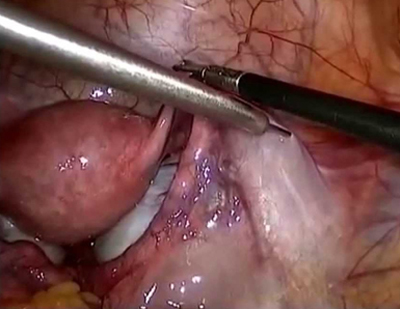Dr. Sukhamoy Barik
MBBS (Cal), MS (Obstetrics and Gynaecology) FMAS
Consultant Gynaec Laparoscopic Surgeon and Infertility Specialist
Call Secretary +91 82828 67107
Email - sukhamoy83@gmail.com
MBBS (Cal), MS (Obstetrics and Gynaecology) FMAS
Consultant Gynaec Laparoscopic Surgeon and Infertility Specialist
What is a Laparoscopic Ovarian Cystectomy?
An ovarian cystectomy is surgery to remove a cyst from your ovary. Laparoscopic surgery is a minimally invasive surgery technique that only uses a few small incisions in your lower abdomen.
Why am I having this surgery?
Many women will have an ovarian cyst at some point during their lives. Commonly, cysts will cause little to no symptoms. However, if a cyst is causing painful or discomforting systems, surgical removal of the cysts may be the best treatment option. Some symptoms of an ovarian cyst include pelvic pain, especially during your period or sexual intercourse.

What happens during this surgery?
Before surgery begins, you will be given anesthesia to sleep. A laparoscope – a thin tube with a camera on the end – is inserted into the abdomen, usually at the sight of your navel, through a small incision. Additional incisions will be made on your abdomen. Air will be used in the abdomen to create more space between your abdominal wall and internal organs. Surgical instruments will be used to remove the cyst.
What are the Risks?
This procedure has a small risk of:
1) Possible need for removal of the ovary
2) Bleeding during surgery, which may require a blood transfusion
3) Infection of the bladder or surgical site
4) Damage to surrounding organs (bladder, bowel, and ureters)
5) Possible need for further surgery
What should I expect during recovery?
After the procedure, it is normal for your navel area and abdomen to be sore and possibly bruised. Your shoulders and back may hurt from the gas placed in your abdomen during the procedure. You may have some vaginal discharge or spotting after surgery.
The incisions in your abdomen will be closed with skin adhesive or stitches and may be covered with Band-Aids. If you have bandages, they can be removed 24 hours after surgery, and the adhesive or stitches will dissolve on their own. If you have small bandage trips on your incisions, leave them on and they will fall off on their own. If they do not fall off you can remove them seven days after your procedure. Do not soak your incisions in the bathtub or go swimming. You may shower, but do not rub your incisions.
The first week after surgery, you may feel more tired than usual. Take it easy this first week, and then gradually increase your activity level with short walks and light activity. Sexual activity can resume when you feel comfortable.